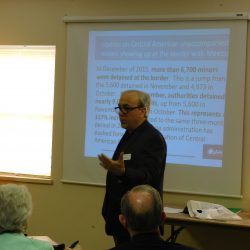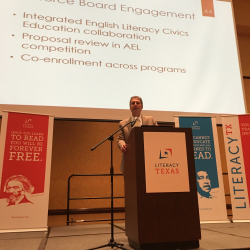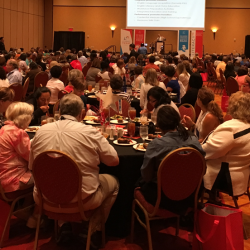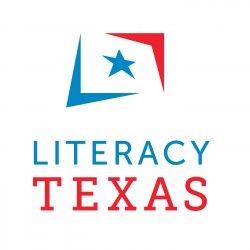 Dear readers,
Dear readers,
Welcome back to another week of conference discussion! Today, we want to highlight a few sessions on a topic we think will be helpful for many of you: technology.
Texas is a large and varied state, and many of you are familiar with the importance of computers and technology in our work. Digital tools enable students to overcome learning difficulties and engage in their education, and distance learning is a growing alternative for students that cannot attend physical classes. As we continue to offer literacy services to the underserved, it is important that we learn to utilize technology effectively, in the classroom and beyond. Literacy Texas is happy to welcome a number of presenters to speak on this topic during our conference. Sessions on distance learning and technology will include:
Technologizing Your Classroom
This comprehensive course will cover everything from designing lessons that integrate technology into instruction, to finding fun and engaging technology tools. It will also offer ideas and resources for future technology use in the classroom.
Assess For Success: Assessing Student Performance with Tech Tools
This presentation will teach educators about three different tech tools (Plickers, Quizizz, and Kahoot), enable participants to experience them through a student perspective, and allow them to set up and explore one of the tools.
Creating 2.0 Classrooms on 1.0 Budgets
Want to bring digital literacy into your class or program, but budget constraints are slowing you down? This is the session will explore digital resources and provide options for finding free or discounted hardware and software.
Assistive Technology: Creating an On-Ramp for Digital Learning
During this Wednesday Workshop, participants will learn about and explore several practical, accessible examples of assistive technology (AT) that have instructional implications for serving the needs of students with learning disabilities in the AEL classroom.
We’ll continue sharing news of our conference with you next Wednesday, but for now, make sure to download our mobile app — we’ll be announcing all presentation details this week, and our app users will be the first to know when the schedule is available!
Register

 Dear readers,
Dear readers, Dear readers,
Dear readers, Welcome to the final Workforce Wednesday blog post! This blog series will end, but the blog will continue to bring you top-notch information and resources. This is a site you want to bookmark! So far, we’ve discussed what a Workforce Development Board does, how you can partner with your local board, and ways to incorporate workforce development in the classroom. Now, for the final week of Workforce Awareness Month, we will discuss advocacy in the context of today’s Adult Education and Literacy landscape.
Welcome to the final Workforce Wednesday blog post! This blog series will end, but the blog will continue to bring you top-notch information and resources. This is a site you want to bookmark! So far, we’ve discussed what a Workforce Development Board does, how you can partner with your local board, and ways to incorporate workforce development in the classroom. Now, for the final week of Workforce Awareness Month, we will discuss advocacy in the context of today’s Adult Education and Literacy landscape. Happy Workforce Wednesday, readers! WAM is more than halfway over, but we’re not even close to filling your workforce toolkits. Last week, we talked about partnerships between community-based organizations and Workforce Development Boards. As Adult Education and Literacy becomes more workforce-oriented, it is increasingly important to connect with people in your community who know the local needs and trends.
Happy Workforce Wednesday, readers! WAM is more than halfway over, but we’re not even close to filling your workforce toolkits. Last week, we talked about partnerships between community-based organizations and Workforce Development Boards. As Adult Education and Literacy becomes more workforce-oriented, it is increasingly important to connect with people in your community who know the local needs and trends. Welcome back, readers!
Welcome back, readers! Welcome, one and all, to WAM!
Welcome, one and all, to WAM! At the beginning of this year, one of the resolutions that passed through the Literacy Texas office was to update and improve the online support of our organization. We changed the frequency of our newsletter, implemented a calendar, compiled a presentation and resource library, and now, finally, we are launching our blog. (And that’s not all — we’ve got a few other surprises coming soon!)
At the beginning of this year, one of the resolutions that passed through the Literacy Texas office was to update and improve the online support of our organization. We changed the frequency of our newsletter, implemented a calendar, compiled a presentation and resource library, and now, finally, we are launching our blog. (And that’s not all — we’ve got a few other surprises coming soon!)